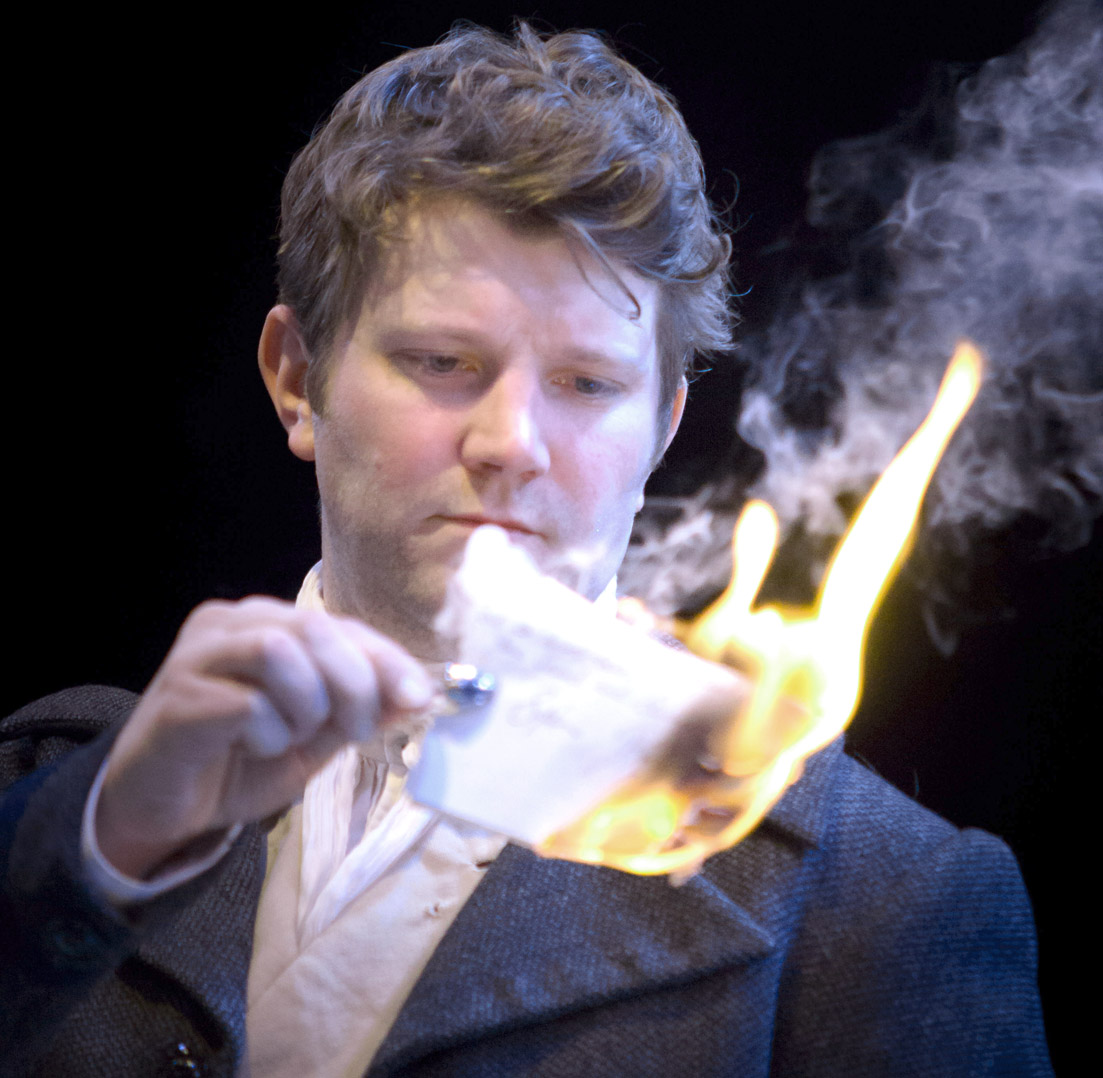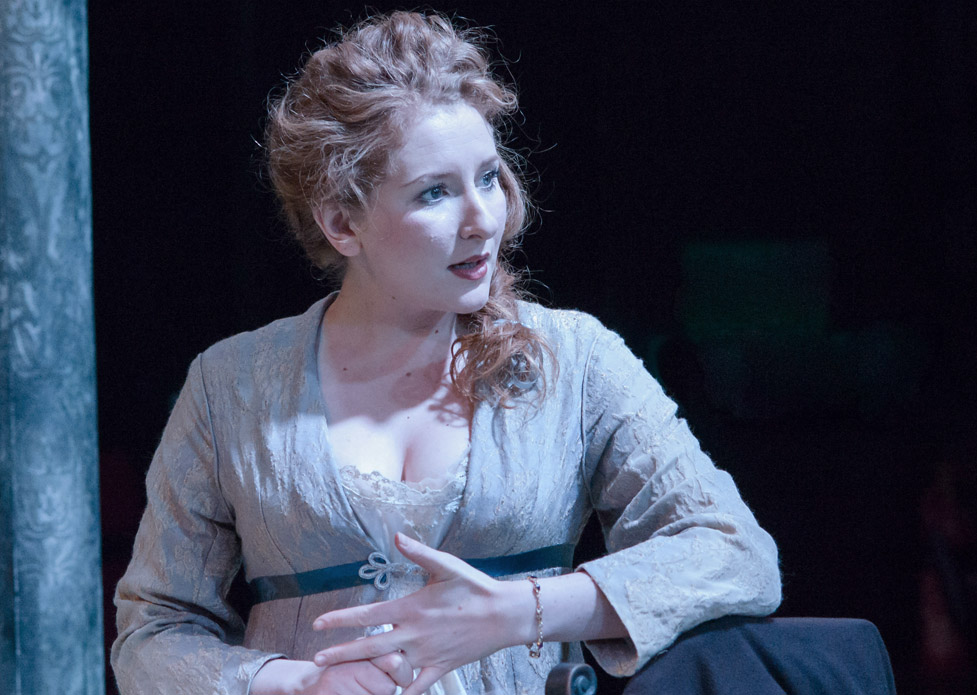Stoppard’s Arcadia is multi-layered cake of a play. Take some Classical and Romantic attitudes to Science and Art, stir in some fractal equations, laws and theorems, add a time frame of two centuries, sprinkle in some sex, and mix. Now sit back and enjoy watching the recipe rise in the oven that is the Tobacco Factory!
Andrew Hilton’s Shakespeare at the Tobacco Factory ensemble has stepped across seamlessly from their excellent production of As You Like It to convince with this leviathan of a play. At just on three hours with oranges at halftime, this is no mean mental workout.
We begin in 1809. The play is set in Sidley Park, an English stately home. Lady Croom’s daughter, Thomasina Coverley, is being schooled in the arts and sciences by her private tutor Septimus Hodge. A precocious teenager, Thomasina is already seeing past the confines of her Newtonian textbooks and attempting to do with pencil and paper what could only be realised almost two hundred years later with computers. As her teacher is busy satisfying the sexual advances of other cohabitants of the household, and avoiding the dangers of impending duels in the process, Thomasina’s youthful charms and natural genius will eventually condemn him to a hermit’s life in her mother’s new Romantically styled garden.
Hannah Lee, as Thomasina, carries us through the unfolding story with sparky enthusiasm as a teenager with a burgeoning interest in science and sex. Piers Wehner as Septimus goes about his business impressively phlegmatic despite becoming embroiled in some very iffy behaviour. As Lady Croom, Dorothea Myer-Bennett does a good job of ticking off the landscape architect Richard Noakes for the new garden designs he is proposing for the manor, and later for the rhythmic grunts of the steam machine draining her lake, while not averse to a little pumping on the side herself.
The play swings into present day. But the simple props, table, chairs, books etc. remain the same for both eras. An historian, the emotionally reserved Hannah Jarvis, played to perfection by Polly Frame, begins an intellectual joust with the visiting English don, Bernard Nightingale, played by Matthew Thomas, as she uncovers material for a book. Reminiscent at times of Hancock at his railing best, the academically vain Nightingale is seized by the idea of discovering a murder, perpetrated he believes by the visit of Lord Byron to the house shortly before his sudden departure from England in 1809.
Stoppard has his fun batting us back and forth between nineteenth to twenty-first centuries as his contemporary researchers hone in on their Georgian subjects. Eventually as the perpetrators from both eras appear together, invisible to each other but not to us, Stoppard shows us, that as we waltz through an irrevocably doomed world our reach for knowledge is matched by our need for human affirmation. This Shakespeare at the Tobacco Factory production makes a strong case for both. Like all long plays, there is sometimes a feeling that a little more editing could have improved the lot of the audience. But this is an experience worth the effort, I strongly recommend it.
Throughout the play, and straddling the centuries, a tortoise remains a living relic of the house. In Chinese symbolism the tortoise represents the beginning of creation, time, longevity and wisdom. I wouldn’t be surprised to find it sitting proudly atop a Stoppard coat of arms. ★★★★☆ Simon Bishop



